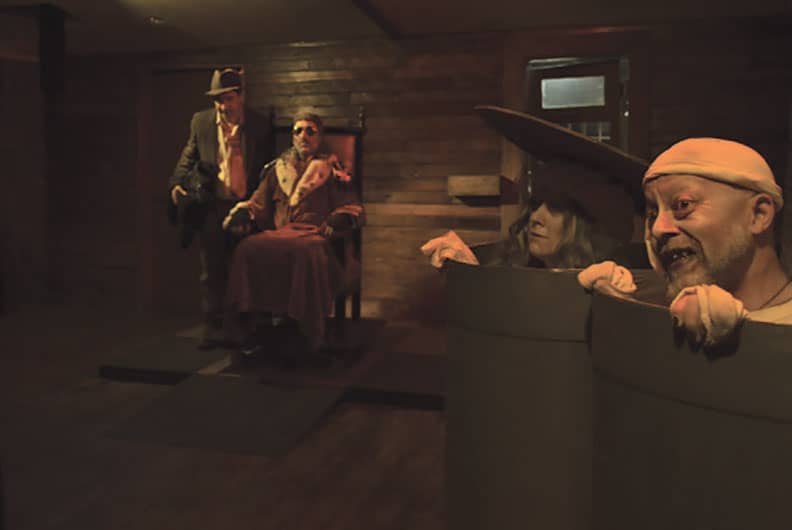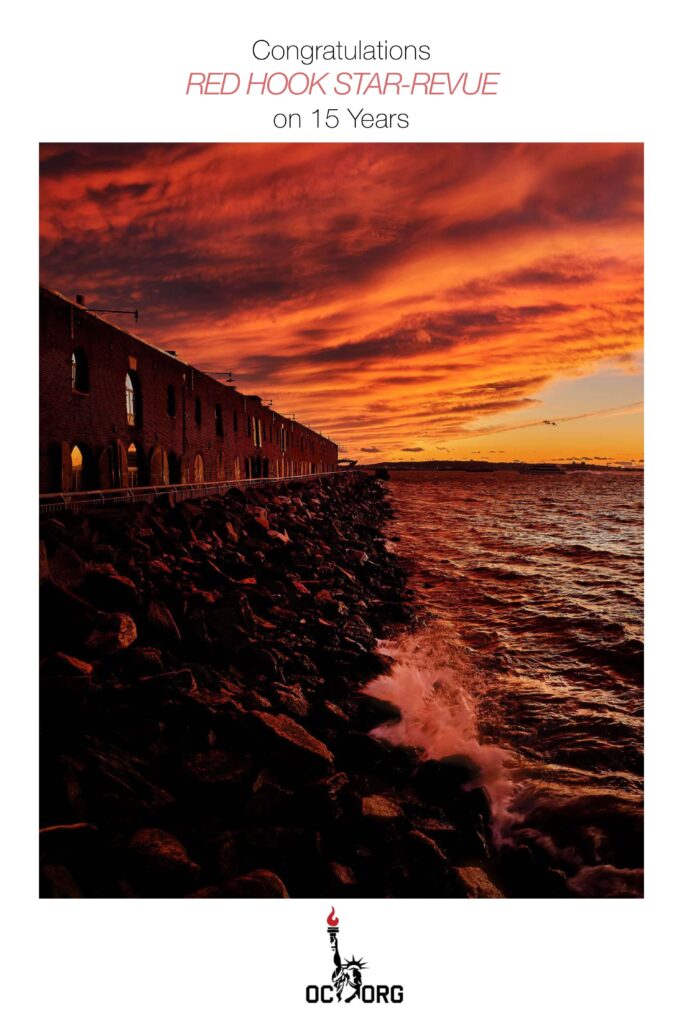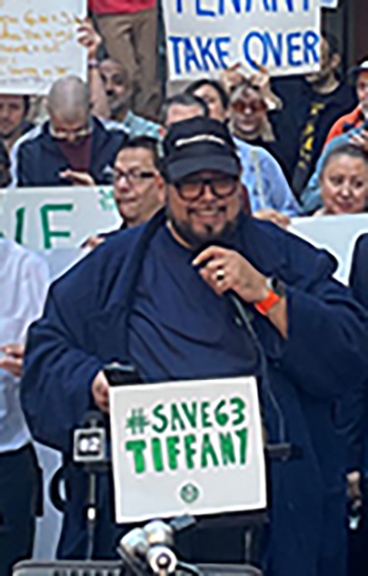Bobby Cole’s long established (1992) Brooklyn Stage Company (BSC) is performing Samuel Beckett’s Endgame at Sunny’s Bar through the end of the month.

Cole has numerous productions under his belt and will be tackling Endgame with aplomb no doubt; Tom Keener directs. BSC’s (and their Manhattan sister company Mortals Theater) credo is to “seek to breathe new life into classic plays with a working class social and political consciousness.” The choice of Endgame is appropriate.
Back in 1994, Cole and BSC took on Beckett’s first play, a little ditty called Waiting for Godot, which you may have heard of. They did it on the barge too. Cool. Sunny Balzano performed in it as Lucky – I wish I had seen that! That production of Godot continues to elicit discussion and fond remembrance by the Red Hook (newer?) old timers. There is still a picture of the show behind the bar. I spent many an afternoon speaking about that production with Michael Goodall (R.I.P.) who also appeared in the show as Vladimir.
Cole/BSC followed Godot with Macbeth in 1994, and David Mamet’s American Buffalo in 1995.
Cole played Oedipus in Oedipus Rex in 2007 and directed Hamlet in 2009, which received good notices. Yes, a whole bevy of feel-good-hits-of-the year, but it gives an idea of what Cole and BSC are willing to take on. No fluffy stuff from them to be sure!
Godot really is the easier of the two Beckett plays to do – if that’s fair to say. Everybody knows Godot (or they know that they should know it), so if they don’t “get it” they can at least nod their heads in appreciation of witnessing a classic. And Godot is at least funny (if the production lets it be). Endgame…not so much. Also, the characters in Godot have all of their appendages and can walk and stuff.
Godot, written 1948 – 1949, premiered in 1953 in the original French and later was translated to English by Beckett himself. According the cyber-sphere, Godot, a “tragicomedy,” is “the most significant English language play of the 20th century.” Whoever decided that, and when, I didn’t bother to try to figure out because Endgame is the play at hand.
So Beckett (1906 – 1989), now established as a heavy hitter in the “Theatre of the Absurd,” has to write a second play. And Endgame is what he comes up with. It’s a one-act (a long one-act) that also originally premiered in French in 1957. The name refers to the final stages of, well, whatever, but most often, the final stages of chess. It too is classified as a “tragicomedy,” but it’s a little light in the comedy department in my opinion. We’ll see how Keener and cast get it over.
Here’s the skinny: No one really knows what it is about (or if they say they know, they are grasping at anything they can; the actors/director have to create some semblance of structure/meaning).
This is telling: a guy (Theodor W. Adorno) wrote a piece in 1961 titled “Trying to Understand Endgame.” Note that the title is “Trying to…” not “Understanding…” You also know you’ve got a enigma on your hands when the best the legions of Wikipedia editors can come up with is “…among Beckett’s most important works.” My emphasis on “important” – important, huh? And that means…? The Wikipedia page also throws out concrete interpretive analysis like “it has also been suggested” and “could be” and “may suggest.” Everyone is just guessing, and Beckett wasn’t the kind of guy that was going to let you in on the secret.
Brooks Atikinson reviewed the U.S. premier of Endgame in 1958 (at the Cherry Lane) for the New York Times – “Samuel Beckett’s second play turns out to be quite impressive. Impressive in the macabre intensity of the mood, that is. […] a portrait of desolation, lovelessness, boredom, ruthlessness, sorrow, nothingness. […] Although the dialogue is often baffling, there is no doubt about the total impression. We are through, [Beckett] says. Nature has forgotten us. The jig is up.”
One character, Hamm, is unable to stand and is blind; Clov (Hamm’s servant) is unable to sit; and Nag and Nell (Hamm’s parents) have no legs and live in dust bins (Brit speak: trash cans).
Sounds like fun huh? Well, perversely, it is. You’ll have to take my word for it.
Beckett spent the rest of his career moving aggressively towards – and possibly beyond – “minimalism.” Beckett reportedly said in 1973 that “The best possible play is one in which there are no actors, only the text! I’m trying to find a way to write one.” And boy did he try, starting (consciously or not) with Endgame (the folks in the dustbins), through Happy Days (1961; the lead character is buried up to her waist in sand), to Not I (1972; the character literally consists of just a pin spotlight on the actor’s mouth, no body, no face, nothing else).
BSC ran through some previews of this Endgame production last month, so they should be raring to go. I am looking forward to seeing this “most important” work. It doesn’t come around often. See you there, and be thankful that the characters at least have faces.
Endgame can be see Sundays, February 15 and 22 at 2:00 pm, Tuesdays, February 10, 17 and 22 at 8:00 pm
Sunny’s Bar is at 253 Conover Street, Brooklyn, 11231
Author
Discover more from Red Hook Star-Revue
Subscribe to get the latest posts sent to your email.










One Comment
Love this production. It builds up to Hamm’s finale monologue which is “l’ piece de resistance.”